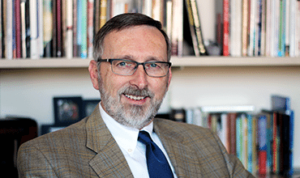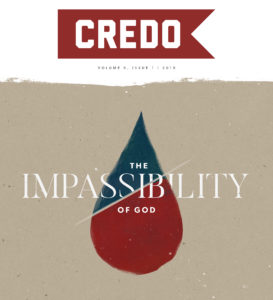Edited by David Dockery and  Christopher Morgan, Christian Higher Education: Faith, Teaching, and Learning in the Evangelical Tradition (Crossway) presents an ambitious and significant vision for the future of Christian higher education. Its scope is wide and ranges from chapters focused on the philosophical/theological foundations to chapters demonstrating the practical application of deep Christian thinking on specific academic disciplines. Each contributor brings an admirable depth of thought to this task and calls upon years of significant experience in framing the issues.
Christopher Morgan, Christian Higher Education: Faith, Teaching, and Learning in the Evangelical Tradition (Crossway) presents an ambitious and significant vision for the future of Christian higher education. Its scope is wide and ranges from chapters focused on the philosophical/theological foundations to chapters demonstrating the practical application of deep Christian thinking on specific academic disciplines. Each contributor brings an admirable depth of thought to this task and calls upon years of significant experience in framing the issues.
Christian higher education, like higher education in general, is in a significant period of transition and change. The challenges of population shifts from rural to urban, rapid escalation of operational costs, proliferation of mobile technologies, changing public attitudes toward higher education, the rapid decline in cultural, moral consensus, the dominance of naturalism and/or secularism in nearly all academic disciplines, coupled with the increasing loss of community and belonging that people desire, has left the higher education enterprise scrambling to find viable answers and solutions for these new realities.
Christian higher education institutions have an even greater challenge in that they are no longer necessarily viewed benignly by the general culture. The pressures facing Christian colleges and universities are many and are relentless. It takes courage, strength, and vision to see past these challenges in order to build institutions that will not only survive this period of upheaval and change, but will contribute significantly to strengthening the faith and witness of their graduates in the uncertain years ahead.
Dockery and Morgan have compiled a strong lineup of contributors for this volume. Most of them are connected in some way to Trinity International University, but there are significant contributors coming from other institutions as well. Dockery himself is likely the foremost scholar/practitioner/author in the realm of Christian higher education today. His long experience of leading Christian, higher educational institutions and his prolific scholarship clearly qualify him to address not only the challenges, but also to cast the vision for a robust, strategic future for those institutions that are seeking to either reclaim or strengthen their commitment to providing a truly Christian, higher education for their students.
What Makes an Education Truly Christian?
The first section of the book lays the foundation for a robust understanding of and compelling case for Christian higher education. The authors present their ideas on what makes an education truly Christian. Nathan Finn and John Woodbridge’s chapters are particularly insightful and helpful in clarifying the need for emphasizing the centrality and authority of Scripture, and the supreme value of knowing Christ ahead all other pursuits.
The second section builds on the foundations laid in the opening chapters and begins the process of applying them to the acts of teaching and learning and proposing the most appropriate way(s) to use them in approaching various academic disciplines. The helpfulness of these chapters is mixed, but I found two chapters especially thought-provoking and useful in more clearly framing the critical issues. Gene Fant Jr.’s chapter on the humanities is worthy of continued discussion and consideration as he makes a strong case for the place of humanities in a genuinely Christian liberal arts education. He also clearly delineates how the humanities must be viewed from a distinctly Christian perspective. The other chapter in this section that I found especially good are from Eric Johnson and Russell Kosits on the social sciences. Among several important observations in the chapter, they make the point that finding faculty (especially in the social sciences) who are properly qualified in their fields and are also theologically sound and able to think “Christianly” about their disciplines is very difficult. This is one of the challenges that this volume doesn’t address in any detail.
The final section of the book aims to apply this emerging vision for Christian higher education to the broader contexts of worship, right living, intercultural concerns, missions, the church, leadership, etc. These chapters offer some helpful insights into applying what is called the “integrative” approach to a truly Christian liberal arts education. oMost of these chapters combine philosophical discussion with ideas for practical application.
Undefined Phrases
Taken as a whole, the book is at various points inspiring, informational, educational, and insightful. At other points, it’s over-reliant on jargon and catch-phrases that go undefined and are therefore less than helpful. Throughout the volume, the phrases which are repeated often are: “Christ-centered”; “engaging the culture”; “integration of faith and learning”; and “all truth is God’s truth.” One of the authors does attempt to define the phrase, “integration of faith and learning.” I wish she had gone further in her attempt. When undefined, these commonly used phrases leave far too much room for wide ranging interpretations which inevitably lead to a failure to achieve the kind of truly Christian higher education the authors are championing. The pressures facing Christian colleges and universities are many and are relentless. Click To Tweet
Each one of those phrases deserves at least a chapter-length treatment in order to clearly define them and assess the range of interpretations which have been applied to them over the years. The damage done to the mission of Christian higher education by the misinterpretation and misapplication of these terms would also be important to recognize.
For example; the phrase “all truth is God’s truth” is an absolutely true statement. However, the very real difficulty in appropriating that phrase is knowing when one has actually discovered truth that can then be considered God’s truth. When we apply that phrase too quickly to the apparent “truths” of any discipline, we run the risk of declaring a “truth” to be God’s truth which may well not ultimately be true. In the social sciences as well as the hard sciences, what is considered to be true at any given point in time very often changes as new discoveries emerge that contradict the previous “truth.”
Perhaps defining and analyzing these oft-repeated phrases is beyond the bounds of what this book is intended to do. However, such a discussion would go a long way toward helping schools actually achieve the vision for a truly Christian higher education that the authors are encouraging.
I do recommend the book for anyone who is involved in Christian higher education. It is thought-provoking, occasionally inspiring, helpful in identifying key issues, and strikes a balance between philosophizing and offering practical guidance regarding forming and implementing a distinctive, Christian approach to higher education.


